11 Vegetables and Herbs You Should Never Grow Near Rosemary
Not every plant grows well next to rosemary. Some herbs and vegetables need more moisture or shade, which rosemary does not like. When planted too close, they may not grow properly or may even affect each other. Giving rosemary the space it needs can make a big difference. It helps to know which plants are better grown elsewhere in the garden.
This post may contain affiliate links, which helps keep this content free. Please read our disclosure for more info.
Basil
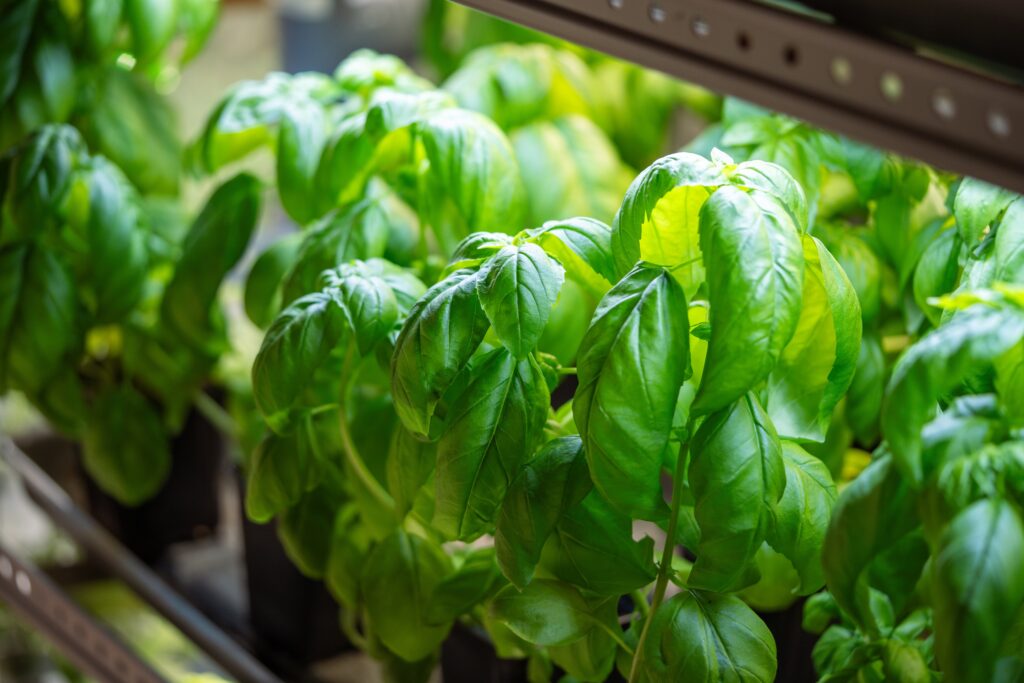
Basil likes moist, rich soil and lots of water, which is very different from what rosemary prefers. Rosemary grows best in dry, well-drained soil and does not need frequent watering. Planting them together often leads to problems for both. One plant may thrive while the other struggles.
Basil also enjoys more shade than rosemary can handle. If grown side by side, their needs will often clash. Keeping them apart gives each herb a better chance to grow strong. Use separate containers or different parts of the garden for best results.
Mint
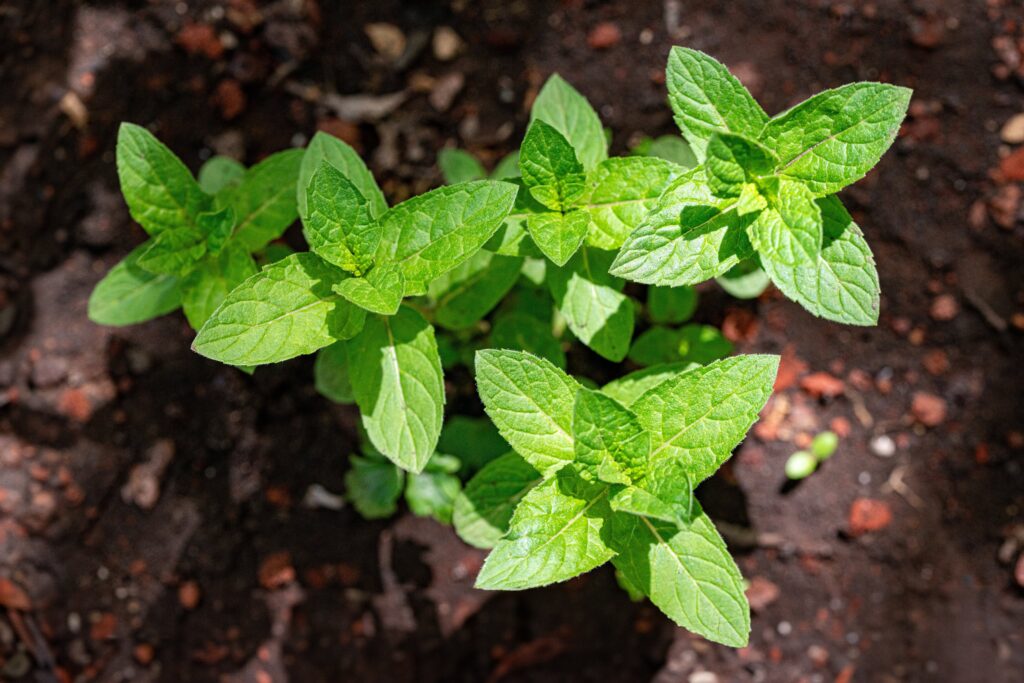
Mint spreads quickly and can take over nearby plants, including rosemary. It enjoys more moisture and can crowd out herbs that like drier soil. Rosemary may suffer when planted near aggressive growers like mint. Their root systems compete for space and nutrients.
It is best to plant mint in its own container or far from other herbs. Rosemary needs room to breathe and prefers a less crowded space. Keeping mint contained can help both plants do better. Regular pruning is also helpful when growing mint anywhere.
Cilantro
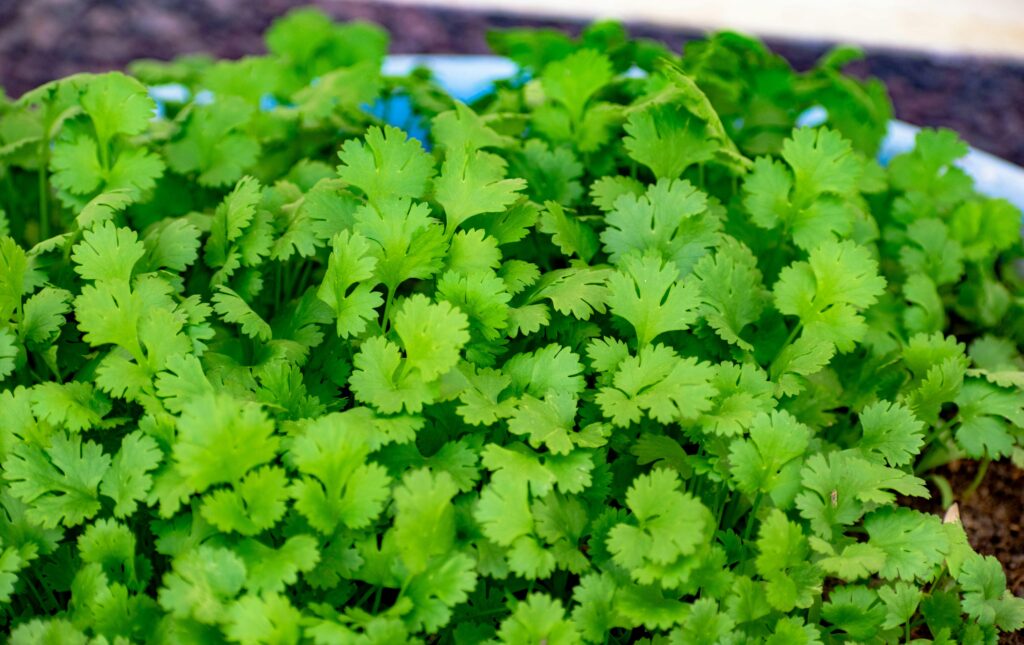
Cilantro grows quickly in cooler, moist conditions, which rosemary does not like. It needs more water and prefers soil that holds moisture. Rosemary thrives in dry soil and full sun, making them hard to match. Growing them together can result in slow growth or poor flavor.
Cilantro also bolts easily in warm weather, while rosemary can handle heat well. These different needs make it hard to manage them in the same spot. Giving each herb its own space helps keep your garden healthy. Try planting cilantro near other cool-season crops instead.
Chives
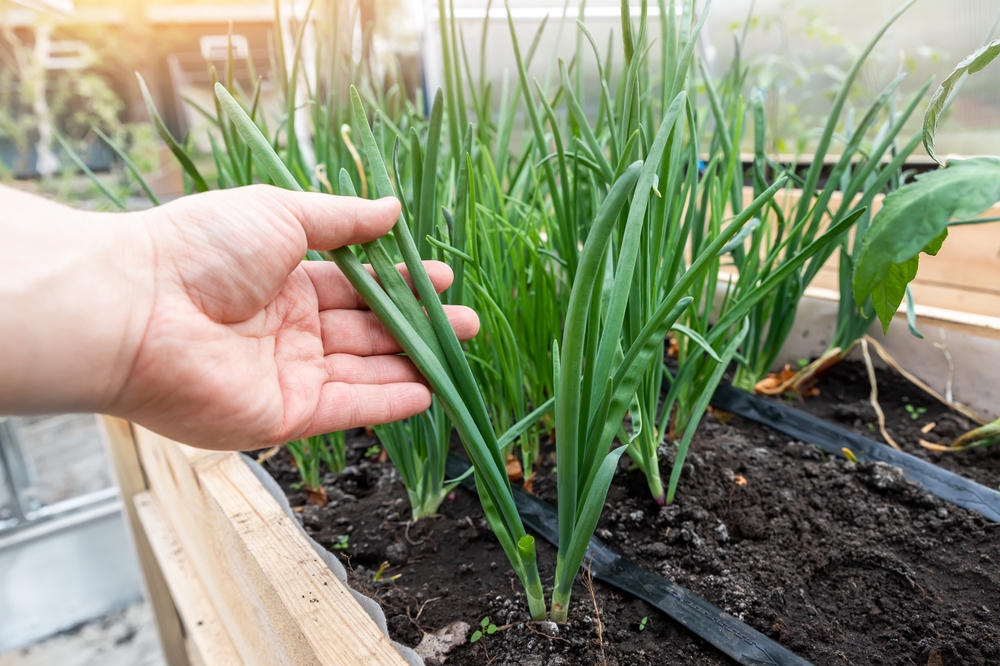
Chives grow well in moist soil and like regular watering, which does not suit rosemary. When placed nearby, the water needs of chives may affect rosemary’s roots. Rosemary prefers dry conditions and can develop root rot if overwatered. These two herbs do not make good neighbors.
Chives also form clumps that can shade nearby plants. This limits the sun rosemary needs to stay strong. To avoid problems, grow chives in a separate area. Both herbs will do better when given their ideal growing space.
Parsley
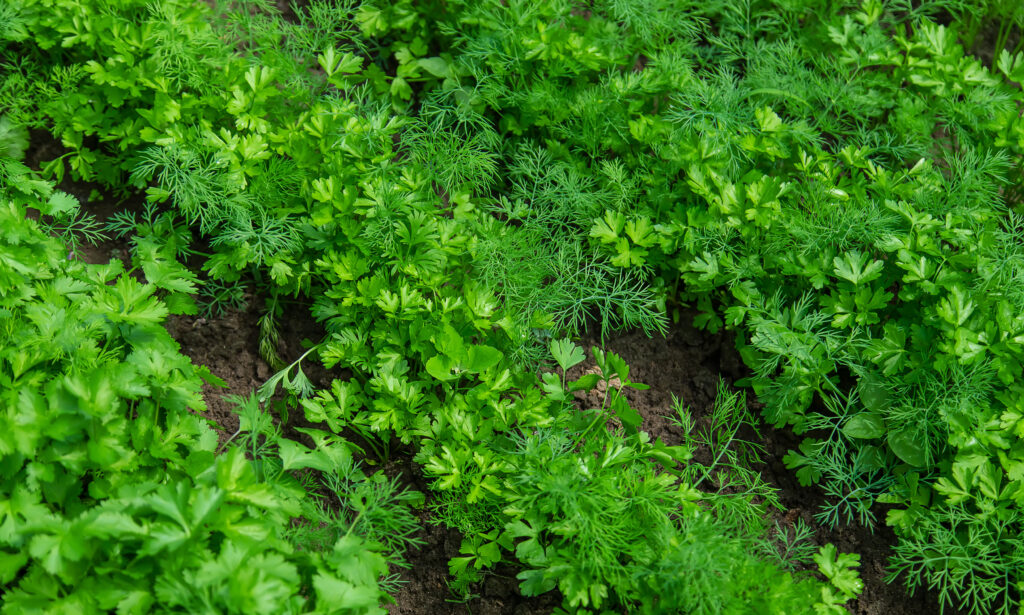
Parsley enjoys damp, fertile soil, and that is very different from rosemary’s dry soil needs. It likes steady moisture and benefits from more frequent watering. Placing parsley near rosemary often leads to poor results for at least one of them. Their care routines do not line up well.
Parsley grows well with other leafy herbs, but rosemary is not one of them. The difference in soil and light preferences makes them hard to manage together. A good tip is to use separate pots or garden beds. This way, you can meet each herb’s needs without conflict.
Tomatoes
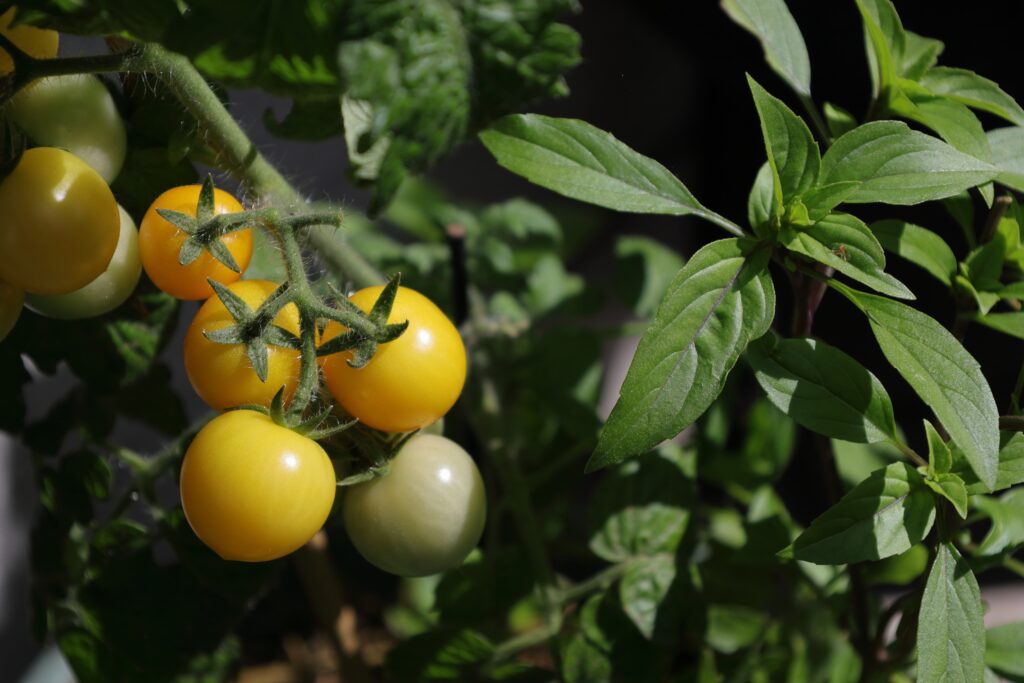
Tomatoes need a lot of water and nutrients, which rosemary does not require. The constant moisture that tomatoes enjoy can cause rosemary to struggle. These two plants have very different care needs and rarely do well side by side. Tomatoes can also grow tall and block sunlight.
Rosemary prefers more airflow and space, while tomatoes can create a dense, humid environment. This can lead to mildew or rot in rosemary. To avoid this, plant them in different areas of the garden. Both will grow better when they have room and proper conditions.
Cucumbers
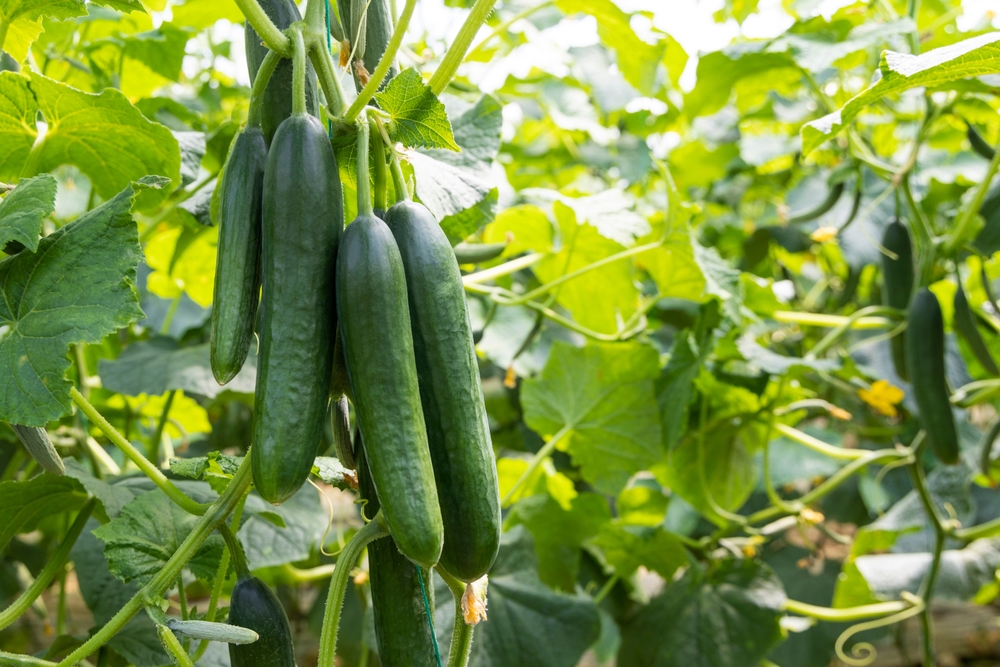
Cucumbers are thirsty plants and need a lot of water to grow well. This creates a wet environment that does not suit rosemary. Constant moisture around rosemary’s roots can lead to poor health or disease. These plants have different needs that are hard to balance.
Cucumbers also take up a lot of space and can shade out other plants. Rosemary likes open, sunny spots with dry soil. Keeping them apart is the best way to help both plants thrive. Use separate rows or containers to give them what they need.
Peppers
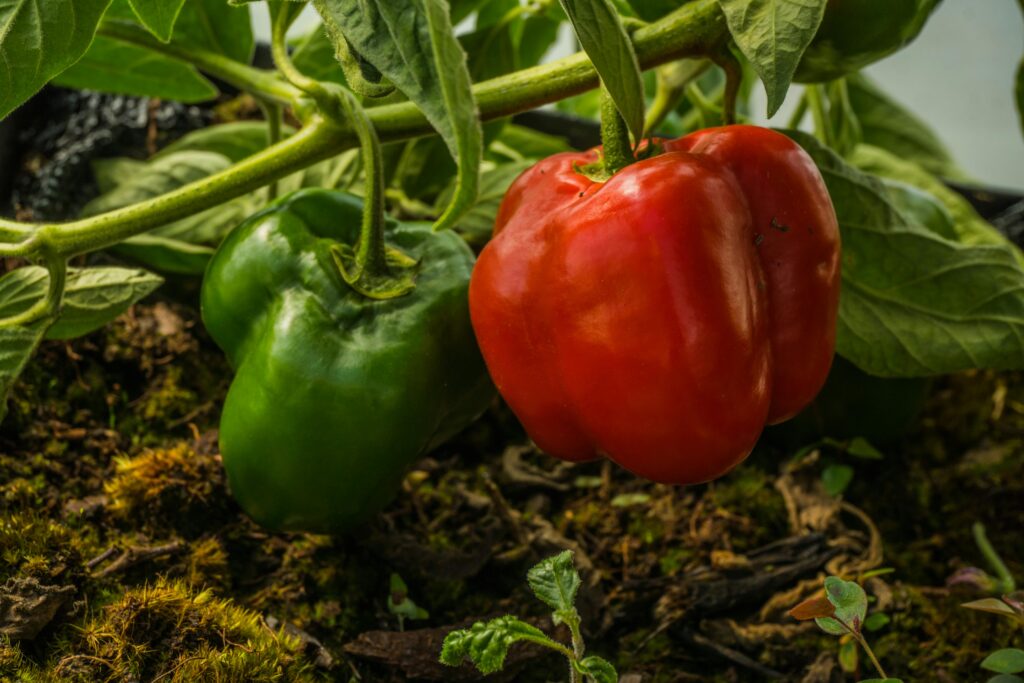
Peppers grow best in soil that holds moisture and is rich in nutrients. Rosemary, on the other hand, prefers sandy soil and less watering. These differences can create stress for both plants if placed together. The extra water for peppers may harm rosemary’s roots.
Peppers also need space and can block sun from lower-growing herbs. Rosemary needs steady light and airflow to stay healthy. Planting them apart gives each plant a better growing space. Use separate garden zones or raised beds when possible.
Fennel
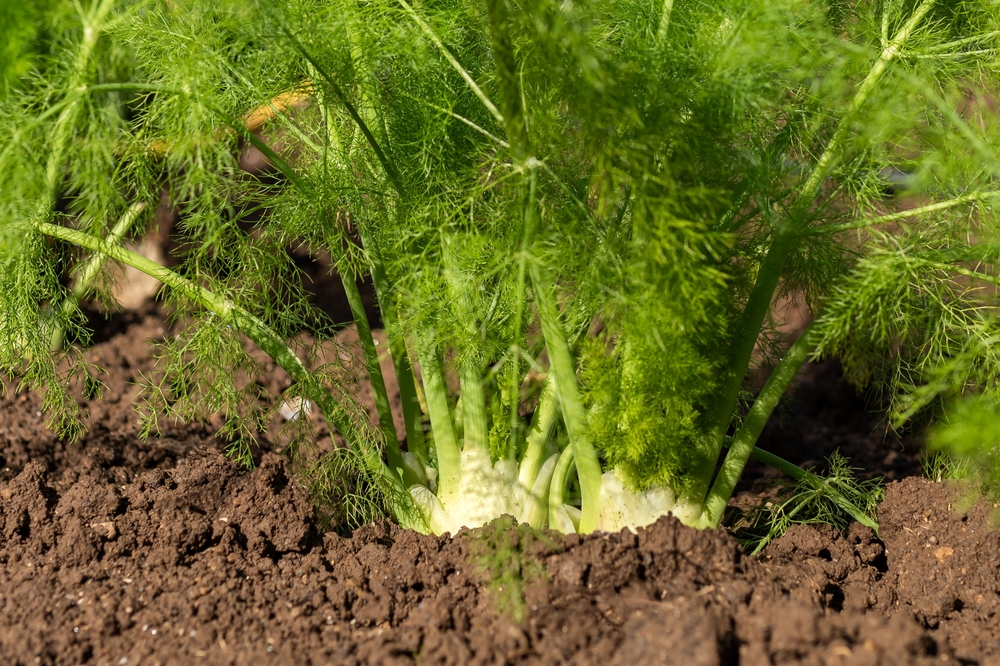
Fennel can release compounds into the soil that slow the growth of nearby plants. This can have a negative effect on rosemary and other herbs. Fennel tends to take over the space around it, leaving little room for other plants to thrive. Its strong presence in the soil can make rosemary weaker.
Even though both like full sun, fennel is not a good companion for rosemary. It grows tall and can cast unwanted shade. For the best results, give fennel its own area in the garden. Keep it away from most herbs and vegetables.
Dill
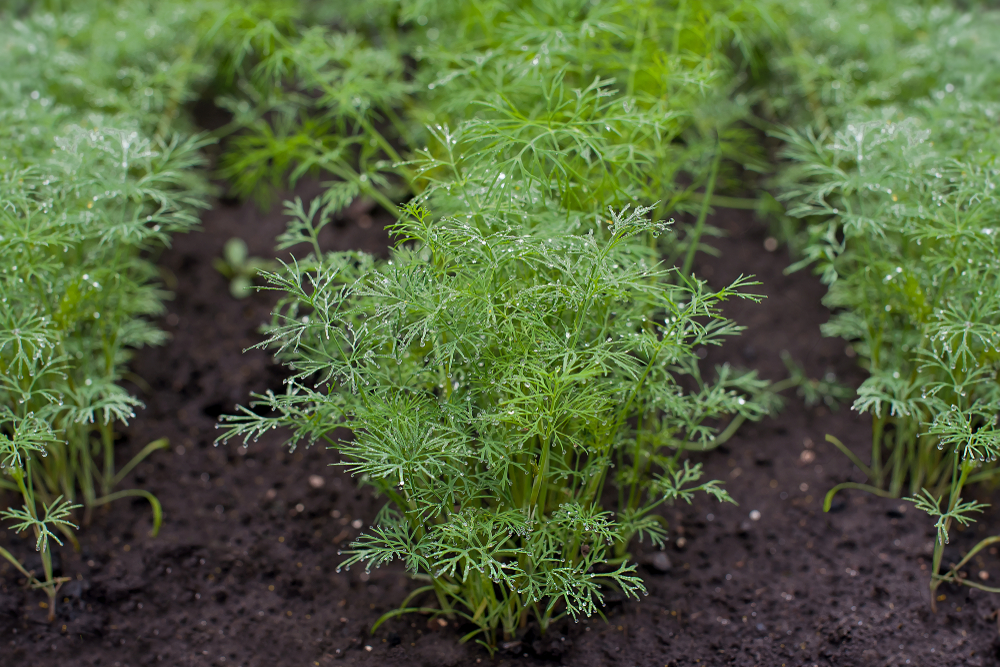
Dill grows quickly and can take up more space than expected. It needs more water than rosemary and does not thrive in dry soil. Placing them together often means one will suffer. Rosemary does best in soil that drains fast and stays dry.
Dill can also reseed itself and grow in unwanted places. This may crowd rosemary and limit airflow. Growing dill in a separate bed helps avoid these issues. It is better to keep dill with herbs that like similar conditions.
Oregano
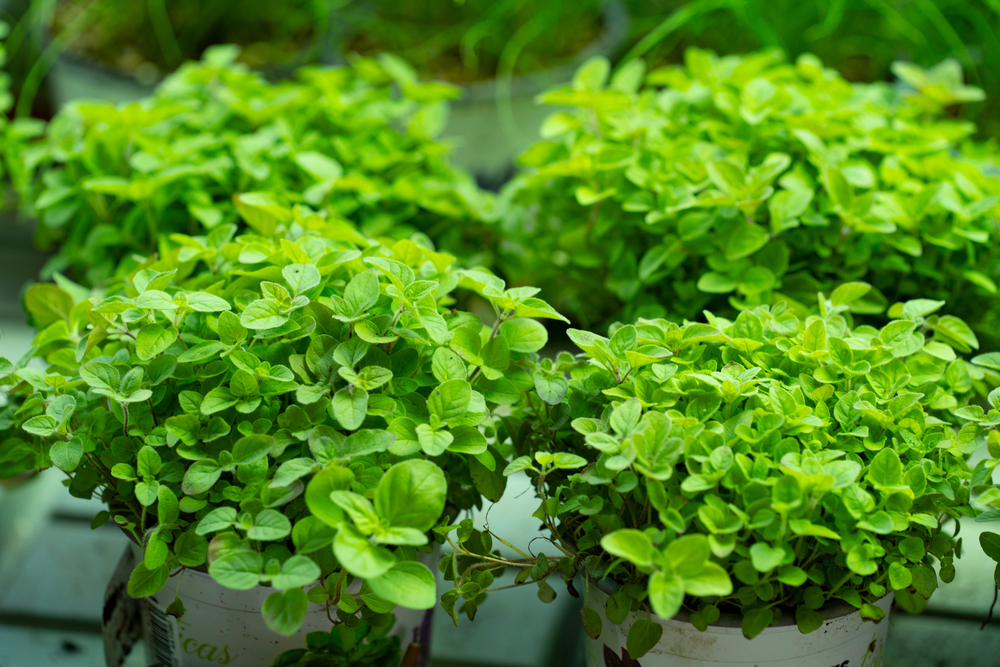
Oregano grows wide and can spread into rosemary’s space. While they both like the sun, oregano needs more water and may compete for nutrients. It can also create shade if left unchecked. Rosemary does better with more space and less root competition.
Oregano grows well with other Mediterranean herbs, but should not be placed too close to rosemary. To keep both plants healthy, use separate pots or give them more distance in the garden. Trimming oregano regularly helps control its spread. A little planning can help both herbs grow well.
Giving rosemary the right space can help it stay healthy and full of flavor. Avoiding certain plants nearby allows each one to grow without extra stress. A little planning can make your herb garden easier to manage.
This article originally appeared on Avocadu.
